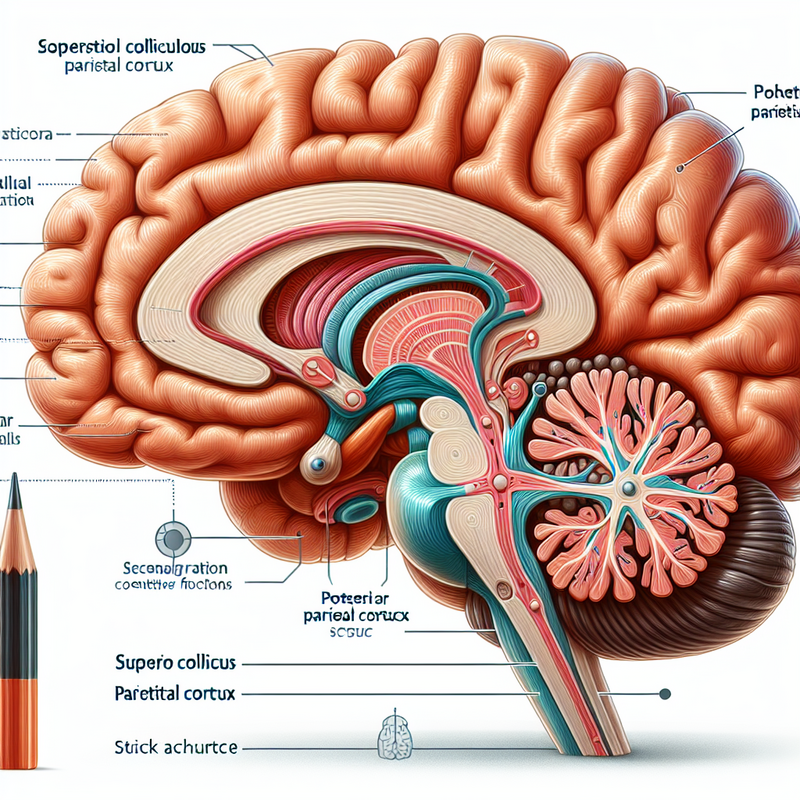A novel discovery out of the University of Chicago presents a dual purpose for the superior colliculus, an area previously noted solely for its role in guiding eye motions. Now, it appears to be significantly involved in advanced cognitive duties.
Published in Nature Neuroscience, this pivotal research takes an in-depth look at complex functions like visual sorting and the making of decisions.
Unexpected Cognitive Abilities in a Primordially Old Brain Segment
The superior colliculus, while primarily associated with basic spatial positioning actions, has been freshly identified as a key player in elaborative cognitive operations. David Freedman, Ph.D., Professor of Neurobiology and the Neuroscience Institute at UChicago, and the study’s lead author, noted the unexpectedness of discovering such sophisticated cognitive signals in this brain segment, often linked to rudimentary spatial tasks and reflexive responses.
Throughout their work, the investigators observed the activity within both the superior colliculus and the posterior parietal cortex, the latter known for its role in making visual categorical choices. Findings showed that the activity within the superior colliculus was even more directly tied to decision-making than that observed in the posterior parietal cortex.
Signifying the importance of visual processing, the superior colliculus is a brain area conserved across numerous vertebrates and directs head and eye movements toward various stimuli. Even in the absence of spatial attention or ocular motion, the research team found this brain area’s involvement in processing abstract thoughts.
Subjects demonstrated difficulties in correctly classifying images when the superior colliculus was transiently suppressed, despite their motor and visual aptitudes mostly staying unaffected. “Our findings emphasize the significance of this brain area for the task at hand,” commented Freedman, highlighting the superior colliculus’s role in intricate cognitive functions, which goes beyond the traditionally held beliefs.
Expanded Cognitive Capabilities Outside of Spatial Activities
Freedman speculates that the discovery could suggest spatial processing offering unique support to cognitive problem-solving. The investigation not only brought to light activity within the superior colliculus but also considered the broader cognitive implications of such activity.
Barbara Peysakhovich, Ph.D., the study’s principal author and former graduate student in Freedman’s laboratory, now a postdoctoral researcher at Harvard, mentioned the potential link between typical human actions, such as eye movements during memory recall or decision-making, and the recruitment of the brain’s spatial zones for cognitive tasks beyond their spatial nature.
The study’s discoveries lay the groundwork for potentially using spatial diagrams and models to swiftly transmit information and facilitate problem-solving. Significantly, this research offers fresh perspectives on the superior colliculus’s function and suggests possible applications for grasping and addressing various cognitive disorders.







